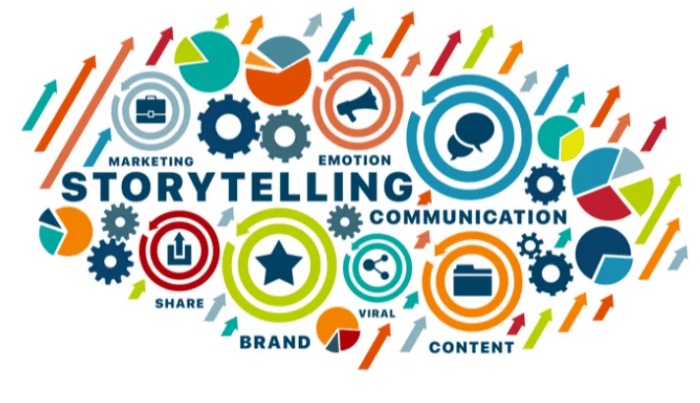The human race has been surviving on stories. Every fact, every philosophy, every incident, and everything in between has been passed on for generations through stories. In fact, some would even argue, that every word uttered is a story.

A story has the power to create an alternate world, propel ideas, arouse emotions, and make everything seem convincing and remarkable. And brands are utilizing the full potential of storytelling.
Storytelling and its types
Brand storytelling involves the usage of creative narratives that bridge the gap between and connect brands to their customers. Brands are built on stories, to form a strong connection with consumers.

Image Credits : Pooja Kawatra
For example, though Indian moms weren’t ready for a meal that would be ready in within two minutes, Nestle in 1983, persisted to present Maggi as an ‘instant’ meal for kids, something that a mom would lovingly give her child to fix his evening hunger instantly.
Storytelling involves the use of unique characters and plots and is practiced in a number of ways like visual brand storytelling, audience-centered, mission-focused, legacy-based, community-based, and even seasonal stories.

Coca-Cola’s mission is to refresh the world and inspire moments of optimism and happiness. Be it their festive season campaigns or their advertisements during summer, each advertising and promotional activity revolves around their brand’s mission.

Nike, too, is completely focused on its brand building through its audience-centered storytelling. For Nike, everybody is an athlete!
Why is Storytelling important
It is a known concept in marketing that facts tell, but stories sell. A brand’s story is an important part of a brand’s identity. It helps in distinguishing your product from your competitor’s product.
When you weave a good storyline around your product, it registers in the consumer’s mind for a long time, even facilitating recall. This impacts consumer behavior in a meaningful manner.
People may forget logos or packaging. But a good story always stays in their mind. Because this resonates with them on an emotional level. And emotion-based marketing makes the brand more relevant to the audiences.
Why do brands use storytelling?
Storytelling humanizes the brand, making them trustworthy and authentic. Because they are appealing, they draw attention easily and hence help in addressing communication gaps if any.

For example, Dove has positioned itself in the market as a purpose-driven brand. It has a vision that wants to make the world a place where beauty is a source of confidence and not anxiety. That is how it directs communication to young girls who need to grow up celebrating their looks and not be victims of body shaming in any form.
Storytelling increases brand awareness and makes it memorable, also highlighting company values. Stories shape brands and help develop long-lasting relationships.












